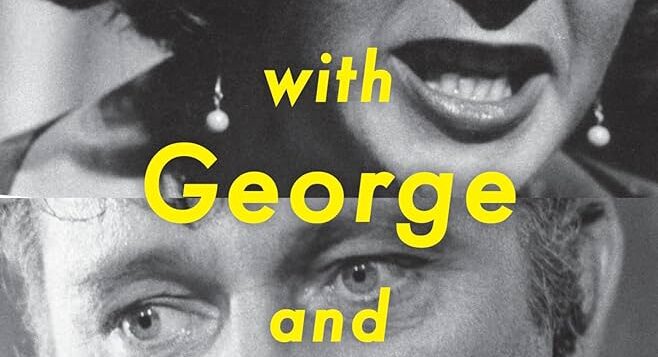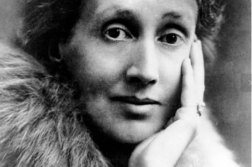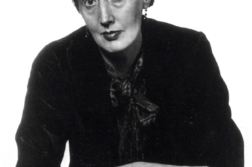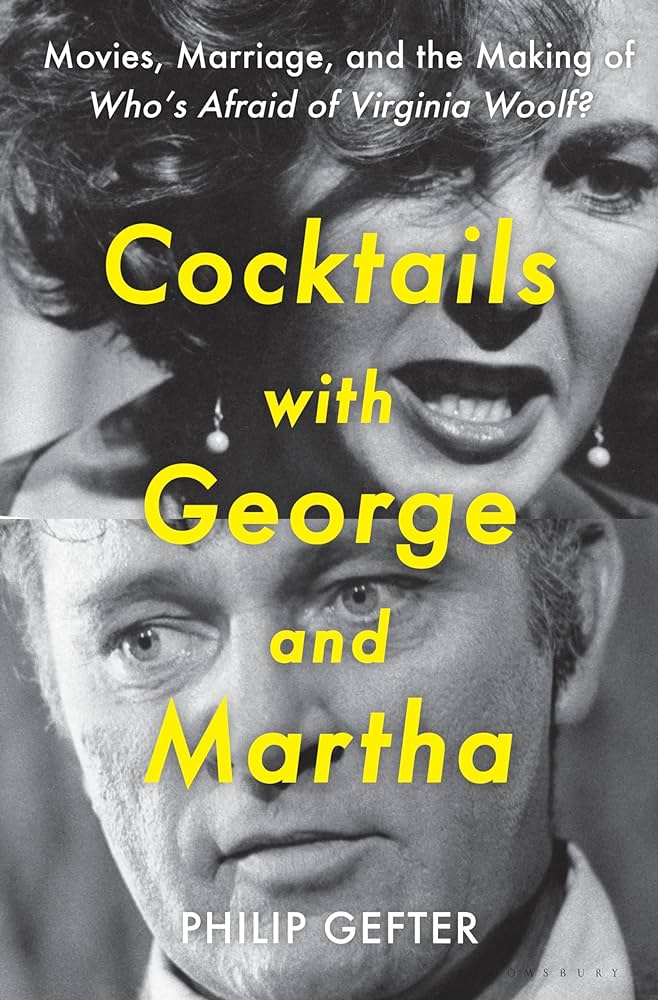 COCKTAILS WITH GEORGE AND MARTHA
COCKTAILS WITH GEORGE AND MARTHA
Movies, Marriage, and the Making of Who’s Afraid of Virginia Woolf?
by Philip Gefter
Bloomsbury. 346 pages, $32.
COCKTAILS with George and Martha is a cultural history that captures the moment when Broadway drama received a jolt from the Theater of the Absurd. Edward Albee’s Who’s Afraid of Virginia Woolf, which opened on Broadway in October 1962, jumps off from the Bohemian precincts of New York City—especially Greenwich Village and Off-Broadway, where Albee’s first one-act play, The Zoo Story, had its American premiere at the Provincetown Playhouse after an unlikely world premiere in Berlin. While Albee’s early career is not a gay Bildungsroman, the first sections of Gefter’s account vividly establish the tenor of condemnation and shame visited upon gay people in the pre- Stonewall period.
We get a brisk but incisive portrait of the home life endured by young Albee, the adopted son of wealthy but emotionally withholding parents whom he fictionalized in his second one-act play, The American Dream, described by one critic as “a couple who once adopted a son, whom they crippled with psychological torture of a classic Freudian kind.” Albee was sent off to a series of high-end boarding schools and managed to get thrown out of most of them. Following his expulsion from Valley Forge Military Academy, his imperious and socially ambitious mother had him enrolled in the high-toned Choate, where he “thrived academically.” Yet after admission to Trinity College, he “once again … grew restless and bored,” and flunked out.
To avoid the draft, he tried joining the Army Reserve. Confronted with the question of whether he was homosexual, he admitted that he was, and was rejected for service. At home, his Army rejection was never discussed, as talk of both feelings and sexuality was avoided, though Albee’s mother Frankie let loose occasional “denunciations about homosexuality [that]were always pointed and emphatic.” Albee and his domineering mother argued frequently, encouraging his truculent behavior. His father gave him an ultimatum to “either straighten up or get out.” Albee packed a single suitcase, and, at age nineteen, fled the chilly confines of his parents’ home. The year was 1947.
Abandoning the bourgeois comforts and bigotries of the family hearth for the adventures of downtown Manhattan, Albee fell in with a heterodox community of “composers, writers, and poets who personified not only the disaffected artist but, equally, the stigmatized urban queer.” His first adventures led to a strained romance with William Flanagan, a composer and music critic, and later to a relationship with a recent Columbia University graduate and theater enthusiast, Terrence McNally, who would go on to become a major playwright of the gay zeitgeist.
 At an early reading of the Virginia Woolf script in Barr’s apartment, Barr grew concerned over some of its rough language, especially since they planned to mount the play on Broadway. Still, he “hoped to take at least one ‘fuck’ uptown,” and Albee worked on revising the script. The central characters are George and Martha, a long-married couple on a New England college campus whose wounded love and verbal sparring, both witty and cruel, are played out in their home, late at night, in front of Nick and Honey, a young couple new to the college whom George has invited over after a faculty party. A secret resides at the heart of George and Martha’s childless marriage: a “son” that they refer to privately but have agreed never to mention in the presence of company. As the night extends into dawn, Martha, daughter of the college president, taunts George as a lackluster member of the History Department, while George, catching Martha’s response to the handsome and athletic Nick, dares her to take it up a notch with him. Later, he goads Nick into telling an indiscretion about his far from perfect marriage with Honey.
At an early reading of the Virginia Woolf script in Barr’s apartment, Barr grew concerned over some of its rough language, especially since they planned to mount the play on Broadway. Still, he “hoped to take at least one ‘fuck’ uptown,” and Albee worked on revising the script. The central characters are George and Martha, a long-married couple on a New England college campus whose wounded love and verbal sparring, both witty and cruel, are played out in their home, late at night, in front of Nick and Honey, a young couple new to the college whom George has invited over after a faculty party. A secret resides at the heart of George and Martha’s childless marriage: a “son” that they refer to privately but have agreed never to mention in the presence of company. As the night extends into dawn, Martha, daughter of the college president, taunts George as a lackluster member of the History Department, while George, catching Martha’s response to the handsome and athletic Nick, dares her to take it up a notch with him. Later, he goads Nick into telling an indiscretion about his far from perfect marriage with Honey.
In Virginia Woolf, heterosexual marriage with all its petty savageries and hidden loyalties is placed on the operating table as in a surgical theater for the audience to witness and wince at. A stellar Broadway cast led by Uta Hagen and Arthur Hill, with Melinda Dillon and George Grizzard as the younger pair, produced a blockbuster production. Yet despite reviews that “acknowledged the play’s significance” and a healthy box office, a backlash started to emerge. Gay novelist Christopher Bram explained that a “trickle of critical remarks became a mudslide, falling not just on Albee but on all gay playwrights.” Richard Schechner, founder of the experimental Wooster Group, wrote: “I’m tired of morbidity and sexual perversity which are there only to titillate an impotent and homosexual theater and audience.”
An essayist in The New York Times targeted two playwrights who “seem to be glorying viciously in their own contempt for others … and their own self-oriented sickness.” Identifying Albee and Tennessee Williams, the writer wondered if the “waspish bitchiness of the dialogue in Virginia Woolf … [corresponded]to a recognizable pattern of speech in a marriage, or to some other relationship out and beyond the experience of most of us?” Albee wrote in a rebuttal in the Times titled “Who’s Afraid of the Truth?”: “If the theater must bring us only what we can immediately apprehend or comfortably relate to, let us stop going to the theater entirely.”
Gefter reports that there was “a lingering rumor perpetuated mostly in the gay community that Virginia Woolf was a gay play in drag, that is, about two gay male couples.” Albee denied this rumor and always refused to allow any theater company to cast his play with male couples. Terrence McNally, his friend and early lover, attributed Albee’s closetedness to his fear “of being identified as a gay playwright.” Still, did Albee’s play drop no hairpins? Consider that Martha’s entrance with the Bette Davis line “What a dump!” is an acknowledged reference to a camp icon. Less noticeable is George’s allusion to his imaginary son as “the little bugger.” Putting a reference to the British term “buggery” into George’s American mouth might seem a small thing, but do American fathers typically refer to their mischievous male tykes as “little buggers”?
§
Once Gefter shifts to Who’s Afraid of Virginia Woolf’s transition to film, the gay elements largely recede from view. In 1963, Oscar-nominated screenwriter and seasoned Hollywood veteran Ernest Lehman had received a copy of the play from his agent at William Morris, which was also Albee’s agency. Lehman found it too disturbing, declaring that he would never see the play. But he was “dragged” by his wife to its opening night in L.A. and “stumbled” out of the theater, concealing his sobs. Lehman’s agent enticed him to consider writing the screenplay with the prospect of selling it to Jack Warner at Warner Brothers Studios. Warner hired Lehman as producer and screenwriter. Albee was paid half a million dollars for the rights, plus ten percent of any earnings above six million dollars.
Warner informally agreed to Albee’s wish for Bette Davis and James Mason to play the leads. Lehman had other ideas, and while he had toyed with such possibilities as Ingrid Bergman, Anne Bancroft, and Geraldine Page, he grew excited at the prospect of Elizabeth Taylor in the role. From one vantage point, she was clearly wrong for the part: she was twenty years younger than Martha’s character. But after the worldwide scandal over her affair with Richard Burton during the filming of Cleopatra in Rome, she was arguably the most famous woman on the planet, and Lehman sensed that the audience would want to see how Taylor handled a role so unlike anything she’d done before. When he finally consulted with Taylor, she cast aside her doubts and agreed to do it, but only if Burton played opposite her as George.
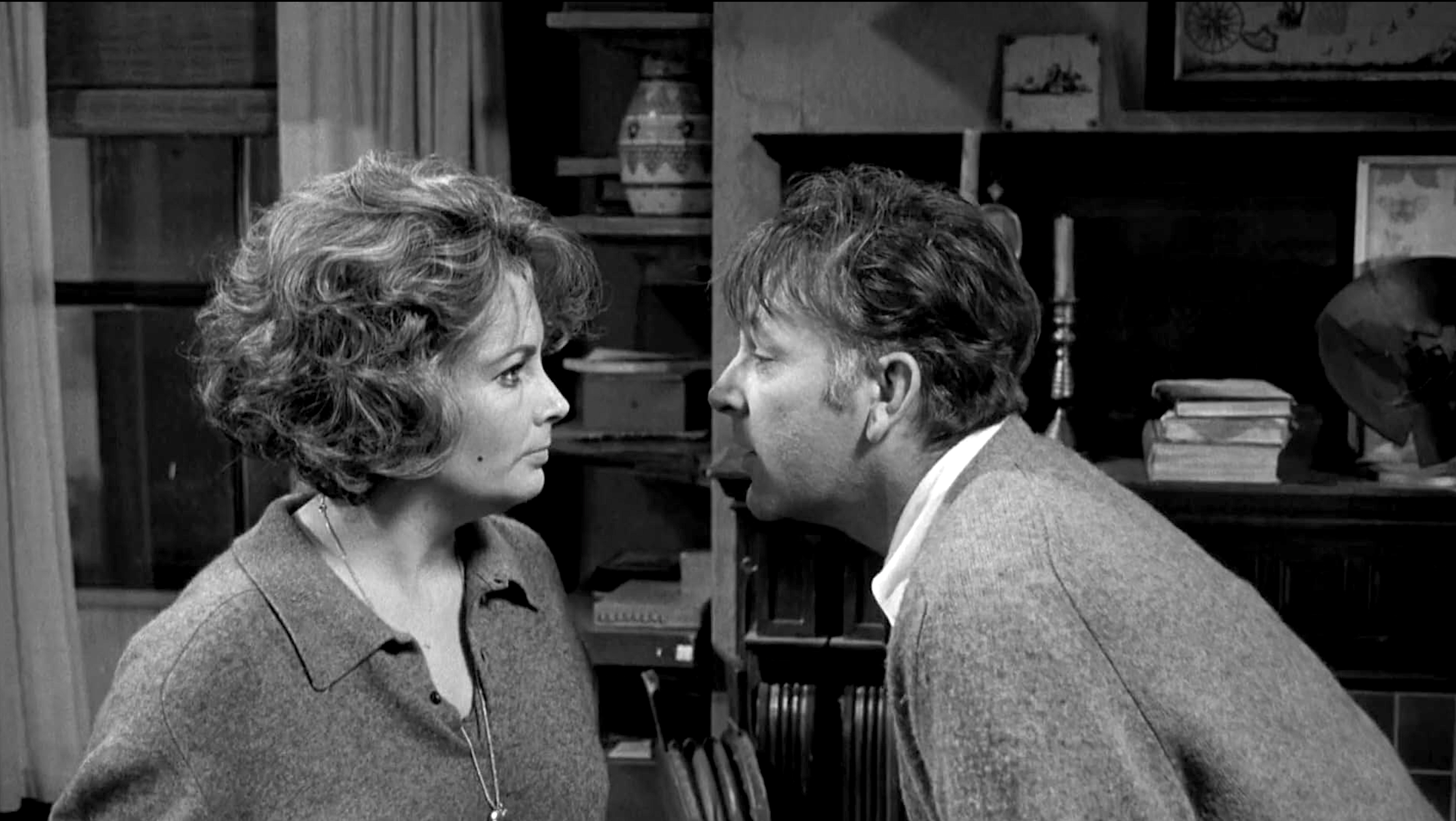
Once both Burtons were on board, Lehman turned his sights to naming the film’s director. Movie stalwarts and a few prominent theater hands were in the mix, but the Burtons “insisted” that Broadway wunderkind Mike Nichols be considered. Back in 1960, Burton had appeared on Broadway in Camelot just when Nichols and his partner in social satire were starring in their hit show An Evening with Mike Nichols and Elaine May. Burton and Nichols met while drinking at Sardi’s. Soon Nichols was a regular at Burton’s nightly parties after the show. When Burton flew off to Rome to shoot Cleopatra and his affair with Taylor made worldwide headlines, he invited Nichols to pay them a visit. He asked Nichols to show Elizabeth around the Eternal City incognito so she could avoid the paparazzi. Nichols had her sport a babushka and “endeared” himself to her, matching the affection he’d already established with her handsome Welshman.
As it happened, Nichols had also met Albee during his Broadway run with Elaine May. The men dined together one evening and enjoyed a real rapport. They both had an intellectual turn of mind, were of the same generation, and shared a sense of being outsiders. Mike Nichols and his Jewish family were refugees from Nazi Germany; the seven-year-old Mike didn’t know a word of English on arriving in New York. An earlier reaction to a childhood medication had resulted in an inability to grow hair. He wore wigs throughout his life. Albee was estranged from a household that barely treated him as one of the family. According to Gefter, the two men “shared a sense of alienation and unhappiness about their respective student years at boarding schools.” Nichols claimed to feel “a real connection … and almost an affection” for Albee, whose “wry cordiality” he found appealing.
Interestingly, Gefter doesn’t mention that this pair of urbane New Yorkers were both men of conflicted sexuality in a repressive era. Although privately gay, Albee remained reticent on the subject in public, unwilling to risk being labeled and pigeonholed. Nichols, on the other hand, would go on to have four marriages and three children. Nevertheless, during his early years of fame he became a close friend to fashion photographer Richard Avedon. Gefter’s earlier biography of Avedon details how he and Nichols, who first met in 1959, established a lifelong friendship that for some time in the 1960s included a clandestine romance that was hiding in plain sight, given their public camaraderie.
Gefter may have felt that such an inquiry was beyond the scope of the story he was telling. Yet Nichols and his difficult professional relationship with his producer Ernest Lehman was at the center of the making of Virginia Woolf. Was there some sort of repressed sexual dynamic at work there? Nichols had never directed a movie. He had transitioned from writing and performing to directing comedies on Broadway, winning a Tony for Neil Simon’s Barefoot in the Park. He was establishing a reputation as a brilliant stage director. When the movie version of Virginia Woolf loomed on the horizon, Nichols was excited but anxious. Lehman’s ideas for translating Albee to the screen did not match his own. Lehman wanted to turn the imaginary child into an adolescent of eighteen who committed suicide. Nichols always understood the child to be a symbolic element, expressing the core love between George and Martha. Nichols made his reservations clear to Lehman before he accepted the directing gig. This sealed the deal, and Lehman sent the Burtons—by now married—a telegram: “Hallelujah. We’ve got Mike. Happy Holidays.”
§
The preceding discussion covers about the first third of Gefter’s narrative, which moves on to a deep dive into the film’s shooting on location at Smith College and on L.A. sound stages, with sharp accounts of Lehman and Nichols locked in a tense standoff over the screenplay or arguing about the demands of their privileged stars, who expected casual tributes in the form of flowers, champagne, and, for Elizabeth, jewelry. In the almost Oedipal stand-off between the seasoned Lehman and first-time movie director Nichols, the latter comes off as apprehensive, ambitious, and manipulative, the former as “level-headed” and practical but sensitive to implied insults.
Gefter has produced a page-turner of great charm that is also a cautionary tale to those with boundless personal ambition: Don’t suppose that you won’t make enemies or that your petty resentments won’t be noticed. His analyses of the book’s main and ancillary dramatis personæ testify to Gefter’s own social and psychological savvy, as when he stands back to editorialize: “Lehman and Nichols related to each other with a brand of slapstick that was not physical but classically neurotic, and typical of competitive New York Jewish men of that era. … Nichols had a paradoxical awareness of his neurotic behavior, amused by it, on the one hand, yet, equally, unable to stop himself from being dick-ish.”
With his earlier dual biography of Sam Wagstaff and Robert Mapplethorpe, followed by a biography of the era-defining photographer Richard Avedon, Gefter has now extended his reputation for literary biography. In Cocktails with George and Martha, he’s given us a richly textured life history of an epic cultural touchstone.
Allen Ellenzweig, a longtime contributor to these pages, is the author of George Platt Lynes: The Daring Eye (Oxford Univ. Press, 2021).


